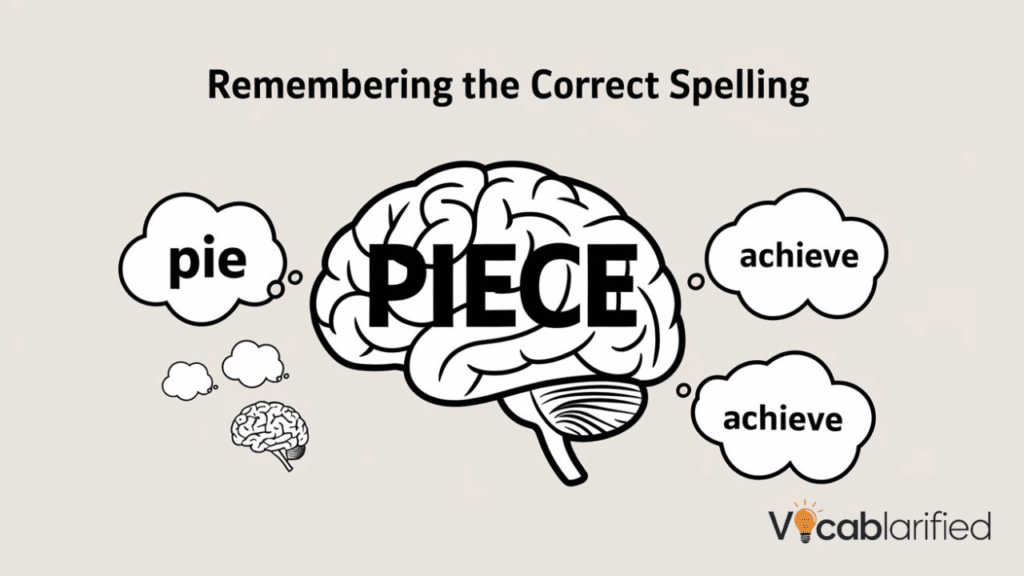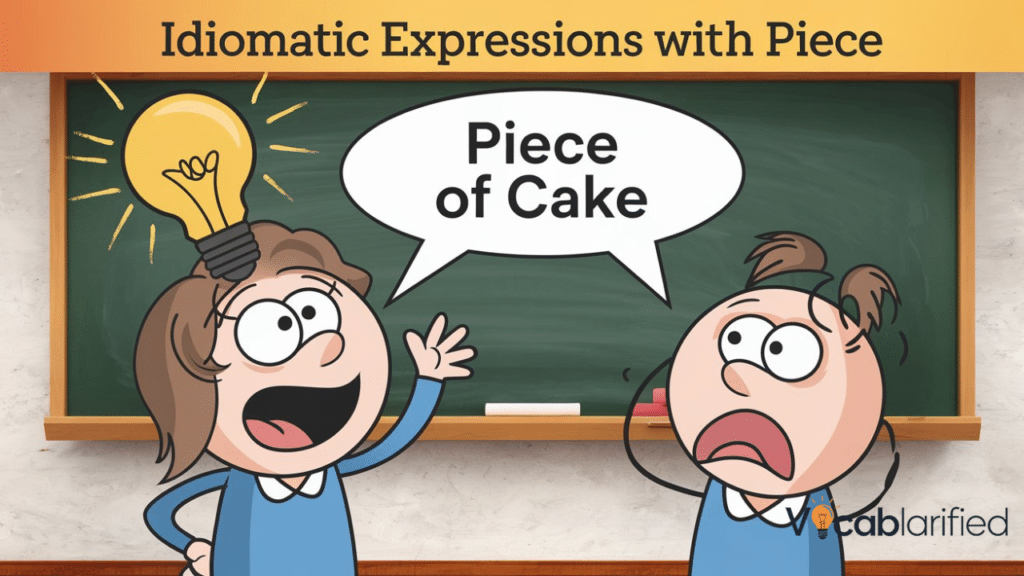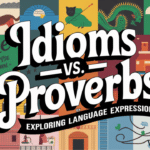Have you ever found yourself scratching your head, wondering whether to write “piece” or “peice” in a sentence? You’re not alone.
This common conundrum has puzzled many writers, both novice and experienced, in their quest for proper spelling and clear writing. In this article, we’ll dive deep into the world of these often-confused words, exploring their meanings, origins, and correct usage to help you become a master of the English vernacular.
The Battle of the Letters
Let’s start with the basics: the right spelling is “piece.” It’s a simple five-letter word that packs a punch in terms of meaning and versatility. “Peice,” on the other hand, is a frequent typo that has no place in proper writing. But why do so many people struggle with this particular word?
One reason might be the old rhyme “I before E, except after C.” While this rule often holds true, “piece” is one of those rebellious words that breaks the mold.

It’s essential to remember that English communication is full of exceptions, and “piece” is just one of many words that don’t follow the typical spelling patterns.
Also know which is correct: Journeys or Journies?
The Origins of Piece
To truly grasp the correct spelling of “piece,” it helps to understand its spelling history. The word comes from the Old French “pece,” which itself evolved from the Vulgar Latin “pettia,” meaning a piece or portion. Over time, the spelling changed to reflect the pronunciation, eventually settling on the “ie” combination we use today.
This spelling ancestry explains why “piece” doesn’t follow the “I before E” rule. It’s a remnant of its French origins, much like other words in the English tongue that have retained their unique spellings despite not conforming to typical English patterns.
Common Mistakes and How to Avoid Them
Now that we know the correct spelling, let’s look at some everyday usage examples where people often make mistakes. For instance, “I’d like a peice of cake” is incorrect, while “I’d like a piece of cake” is correct. Similarly, “The puzzle is missing a peice” should be “The puzzle is missing a piece.”

These usual mistakes often stem from the writer’s uncertainty about the correct spelling. One way to remember the proper spelling is to associate it with other words that use the same “ie” combination, such as “achieve” or “believe.”
| Incorrect Usage | Correct Usage |
|---|---|
| Peice of cake | Piece of cake |
| Peice of mind | Piece of mind |
| Peice by peice | Piece by piece |
| Peice of work | Piece of work |
| Peice of art | Piece of art |
| Peice together | Piece together |
| Peice of advice | Piece of advice |
| Peice of paper | Piece of paper |
| Peice of furniture | Piece of furniture |
| Peice of history | Piece of history |
The Many Faces of Piece
Grasping piece in all its forms is crucial for accurate writing. The word “piece” can refer to a part of a whole, a single item, a work of art or music, a coin, or even a chess figure.

For example, “He ate a piece of the pie” uses “piece” to mean a portion, while “She composed a moving piece for the piano” uses it to refer to a musical composition.
Understanding these various piece interpretations can help you use the word correctly in different contexts, enhancing your English communication skills.
You Might Like this: Tomorrow Or Tommorrow: Which One Is Correct?
Piece vs Peace
While we’re on the topic of spelling distinctions, it’s worth mentioning another word that’s often confused with “piece”: peace. Though they sound identical, their meanings and spellings are quite different. “Piece” refers to a part or portion of something, while “peace” denotes a state of tranquility or quiet.
Realizing piece is spelled with an “ie” while “peace” uses “ea” can help you avoid this typical error in your writing.
The Impact of Misspelling
You might wonder why it’s so important to get this spelling right. After all, isn’t it just one letter? But in the world of proper writing, every letter counts. Using “peice” instead of “piece” can make your writing look unprofessional, distract readers from your message, potentially change the meaning of your sentence, and reduce the credibility of your work.
That’s why knowing piece and its correct spelling is crucial for anyone who wants to communicate effectively in English.
Remembering the Correct Spelling
If you find yourself constantly battling with this typical misspelling, there are several strategies to help you remember the correct spelling.

You can use mnemonic devices, like remembering “A piece of pie is so yummy!” where the word “pie” contains “ie,” just like “piece.” Word association can also be helpful – link “piece” with other correctly spelled words like “niece” or “achieve.”
Practice makes perfect – the more you write “piece” correctly, the more natural it will become. And don’t forget to use spell-check; while not infallible, it can catch obvious errors like “peice.”
The Role of Context in Understanding Piece
Comprehending piece isn’t just about spelling; it’s also about understanding how the word fits into different contexts.
In cooking, you might “add a piece of butter to the pan.” In literature, someone might be “working on a piece of fiction.” In conversation, you might “give someone a piece of your mind,” while in business, a company might be “selling off pieces of its portfolio.”
Each of these examples showcases a different piece elucidation, demonstrating the word’s versatility in English dialect.
The Global Perspective
It’s worth noting that while “piece” is the correct spelling across all English-speaking countries, there can be slight usage variations in how the word is employed. For instance, in British English, you might hear “piece” used more frequently in phrases like “a piece of furniture.” In American English, phrases like “piece of work” (referring to a difficult person) are more common.
Understanding these subtle usage distinctions can enhance your grasp of the English vernacular in its various forms.
The Digital Age
In our increasingly digital world, the battle between “piece” and “peice” has taken on new dimensions. The prevalence of ordinary typing mistakes in online communication has, in some ways, normalized the misspelling “peice.” However, it’s crucial to maintain accurate spelling in professional and formal online contexts.
The Evolution of Language
Language is constantly evolving, and spelling variations that were once considered errors can sometimes become accepted over time. However, it’s unlikely that “peice” will ever be considered a valid alternative to “piece.” The spelling development of English words is typically a slow process, and well-established words like “piece” are unlikely to change without significant linguistic shifts.
| Old Spelling | Modern Spelling | Notes |
|---|---|---|
| Musick | Music | Simplified over time |
| Colour | Color | American English variation |
| Programme | Program | American English simplification |
| Shew | Show | Pronunciation change reflected in spelling |
| Publick | Public | ‘K’ dropped for simplification |
| Piece | Piece | Spelling remained consistent |
| Shoppe | Shop | Archaic spelling dropped |
| Olde | Old | Archaic spelling simplified |
| Waggon | Wagon | Simplified spelling |
| Thiefe | Thief | ‘E’ dropped for consistency |
The Importance of Context
While we’ve primarily discussed “piece” as a noun, it’s important to note that it can also function as a verb in certain contexts. This usage distinction can sometimes lead to confusion. For example, “She’s trying to piece together what happened” uses “piece” as a verb meaning to assemble or reconstruct.
Understanding these different uses is crucial for appropriate usage and accurate writing.
| Noun Usage | Verb Usage |
|---|---|
| A piece of cake | To piece together a story |
| A piece of furniture | To piece out a quilt |
| A piece of news | To piece up a broken vase |
| A piece of land | To piece over a hole |
| A piece of paper | To piece out a living |
| A piece of art | To piece through a problem |
| A piece of advice | To piece up a broken relationship |
| A piece of history | To piece out information |
| A piece of work | To piece together a puzzle |
| A piece of mind | To piece up a torn document |
The Role of Piece in Idiomatic Expressions
The English language is rich with idiomatic expressions, and “piece” features in quite a few of them. Understanding these idioms is crucial for proper usage and fluency in English.

For instance, “piece of cake” means something very easy to do, while “to go to pieces” means to lose emotional control.
Mastering these idioms can greatly enhance your English communication skills and help you avoid spelling discrepancies in context.
| Idiom | Meaning |
|---|---|
| Piece of cake | Very easy task |
| Give someone a piece of your mind | Express anger or frustration |
| Go to pieces | Lose emotional control |
| Piece by piece | Gradually |
| A piece of work | Difficult person |
| Piece together | Assemble from fragments |
| A piece of the action | A share in an activity |
| Piece of the pie | A share of something desirable |
| To pieces | Completely, thoroughly |
| Speak one’s piece | Express one’s opinion |
Conclusion
In conclusion, understanding the correct spelling and usage of “piece” is an important step towards mastering the English tongue.
By avoiding the common typing error of “peice” and grasping the various contexts in which “piece” can be used, you’ll enhance your English communication skills and avoid typical errors in your writing.
Remember, language proficiency is built piece by piece, and every word you master brings you closer to fluent, articulate expression. So whether you’re writing a piece of fiction, giving someone a piece of your mind, or simply enjoying a piece of cake, you can now do so with confidence in your spelling and usage.
Keep practicing, stay curious about the spelling origins of words, and don’t be afraid to dive deep into the fascinating world of English vernacular. After all, language is a puzzle, and each word you learn is another piece that helps complete the big picture of effective communication.

Emma Carter is an experienced blogger at Vocablarified. She enjoys helping people expand their vocabulary and improve their language skills. With a warm and approachable writing style, Emma makes learning new words fun and accessible. When she’s not writing, she loves reading books and discovering new phrases to share with her readers. Emma is passionate about making language learning an enjoyable journey for everyone.







